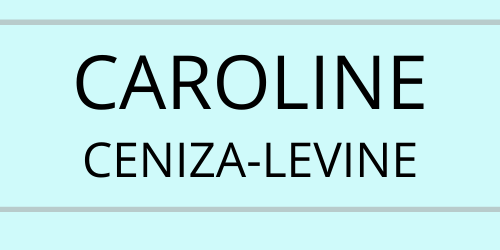Many times the questions I get on career change are how to make it happen. In this case, our reader has already landed a job in a new field but wonders what they should do if they don’t like their new career. Ken asks:
If my career in communications doesn’t pan out, how can I reinvent myself to land work in another field?
The way the question is written it sounds like the job hasn’t started, and yet some hesitation is already there. Yes, it’s true that change includes the risk you might not like the change, but you can greatly help your chances of a favorable change by assuming the positive to start.
Start strong
You want a strong start with anything you do, but especially career change. Career change is a big life change and the disruption it entails encourages second-guessing and rumination that you might have made a wrong decision. While it’s understandable you might have anxiety, your employer may interpret this as disengagement or even a bad work ethic. That’s not a good look for building credibility or trust.
Instead assume the positive — that you’ll love this change and that you’ll be good at it. Give yourself at least 90 days or even 6 months or a year depending on how big the pivot is and how complex your job is. Don’t second-guess yourself during this time. Just throw yourself 110% into your new job, and set a reminder for that future date (90 days, 6 months or a year) to make a self-assessment.
Introduce yourself to your new colleagues so you start building relationships. Get extra help with family, household or other personal obligations since you will be inefficient at your new job and will need to dedicate extra time, energy and attention to work instead of other things. Be easy on yourself as you start this new career, and track how much you’re learning, listen more than you speak and treat this like a new adventure to be excited about, rather than dread.
Focus on tangible wins
Still assuming the positive – that you’ll love this new career – focus on tangible wins in your new role and industry. What is the ROI on hiring you? How are you supporting your manager’s goals? How are you helping your colleagues? If you have specific metrics to hit, make these a priority in how you spend your days. If you’re not sure, get a copy of your new company’s performance evaluation form and understand the process. Ask your manager what their expectations are if there isn’t an official process.
You also want to focus on tangible wins for yourself. What is the ROI on your newfound experience, skills and expertise? Remember that a key part of starting strong in your new career is to track how much you’re learning. A big benefit of changing careers are the new inputs you’ll get, even if you ultimately do something else or even go back to what you were doing before. You’ll see a new way of working. You may uncover things you can apply from one industry to another. At the very least, you are now someone who has taken a risk, who has tried something new, who has expanded their circle of experience.
Focusing on tangible wins will help you if you stay in this new career because you will have measurable results to show at your next performance review. Tangible wins will help even if you leave this new field because they demonstrate that you can get stuff done in different environments. You are a doer, even when you’re new and even when you don’t like your job!
Know you can always recover – i.e., rebrand
Since throwing yourself wholeheartedly into your new career will help you, whether or not you stay in that new field, you can’t lose. You can always recover and move back to what you did before or try a new pivot. You just need to rebrand.
Once you identify what you want to do next, rebrand your career pivot by highlighting how this change you made is valuable to your next employer. A smart job candidate always tailors their pitch to what their next target employer wants and needs. It’s about positioning yourself for the future, not justifying the past.
What will you do knowing you can’t fail?
Now that you know a career change can help you, whether or not you take to your new career or not, approach it as a no-fail situation. Assume you’ll be successful, and perhaps you’ll enjoy it more and transition more effectively right from the start. At the very least, you’ll approach your work with a positive attitude and be that much better perceived by your manager and colleagues.
If it turns out you don’t like this new career, your focus on tangible wins will give you a track record of success that you can apply to your next career.






